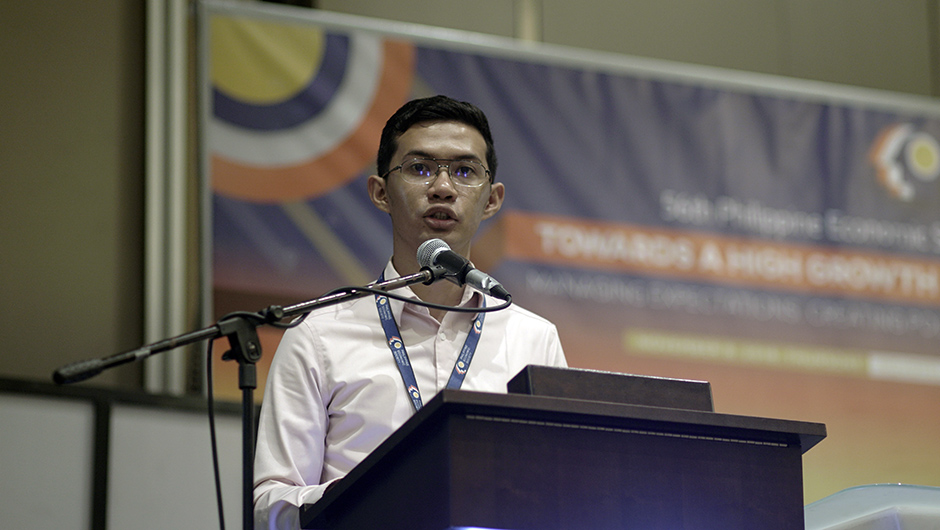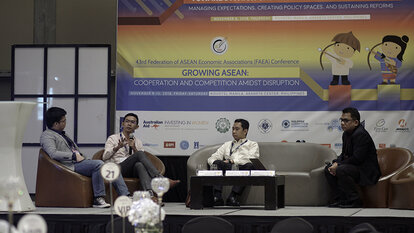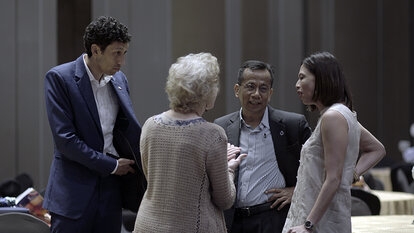Developing Innovative Ecosystem in the Philippines through Startup Legislation

With the Innovative Startup Bill in place, competition will be further strengthened among the actors in the Philippine economy. The proposed legislation aims to respond to the needs of the growing community of innovative individuals and groups who want to pursue a startup in the Philippines, but is hampered by bureaucracy. The Bill was approved during the third and final reading by the Senate in May 2018, a year after it was filed. Its counterpart in the Congress, however, was only filed in July 2018.
The Bill was presented by Mr. Jose Escalante during the Philippine Economic Society (PES) 56th Annual Meeting and Conference on 8 November 2018 in Quezon City. Mr. Escalante is the Policy Officer for Science and Technology from the Office of Senator Paolo Benigno Aqunio IV. Discussants present were Mr. Francis Michael Bautista of Indigo Research, and Dr. Benjamin Radoc of Philippine Competition Commission (PCC).

Senate Bill 1532 has five main features:
- Philippine Startup Development Plan. Host agencies such as Department of Trade and Industry (DTI), Department of Information and Communications and Technology (DICT), Department of Science and Technology (DOST), and Board of Investments (BOI) shall spearhead initiatives to develop the short, medium, and long-term strategies to spur investments, and promote the growth and development of the startup and startup enablers in the Philippines.
- Grants and subsidies for startups and enablers. Patterned after the Small Business Innovation Research (SBIR) of the Small Business Administration of the US, grants will be awarded for research and development on the first phase, and for prototype development of a product or implementation of an innovative service or business model during the second phase.
- Special visas for foreign founders, employees and investors. These visas shall allow foreign talent to be infused into the local ecosystem, noting that interactions with Filipino talents can spur an exchange that will be beneficial to the local startup scene. The bill shall also encourage participation of startups in events abroad with benefits on travel cost.
- Startup commercialization and investment matching fund. The government may co-invest up to fifty percent (50%) of the required capitalization for startups in partnership with accredited investors.
- Philippine Startup Ecozones. In coordination with the Philippine Economic Zone Authority (PEZA), BOI and DTI, it will spur growth and development of startups and startup enablers. Host agencies shall also be mandated to spearhead initiatives to develop the short, medium and long term strategies to spur investments and promote growth and development of startups.
“Government support is important to unlocking the potential for technological innovation. If we pursue it alongside education, job creation, and being business minded, there is a bigger chance that growth will be distributed all over the country” said Senator Aquino.

FNF Philippines has been a partner of PES since 2004. This year’s theme is focused on the theme “Towards a High Growth Economy in the ASEAN: Managing Expectations, Creating Policy Spaces, and Sustaining Reforms.”
Country Director Wolfgang Heinze said that “FNF has always supported innovativeness of individuals and groups who keep the competition alive in the market. This Bill sponsored by Senator Bam Aquino gives optimism for the vibrant startup scene and innovative-minded individuals in the Philippines because government support is important in this pursuit.”